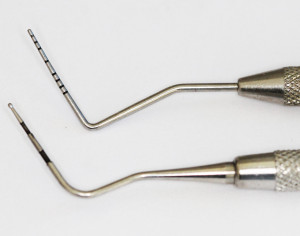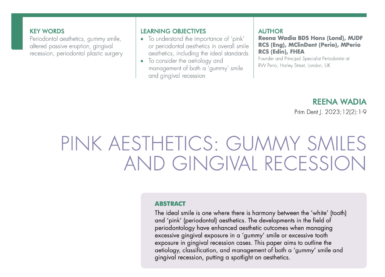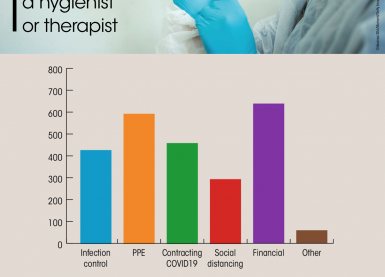May 11, 2014

The stress of final exams, case presentations and interviews is now behind you and the thought of telling people you are now a ‘real’ dentist seems like a sweet ideal. However, it’s not long before you’re facing a long list of patients on your first day in practice. All of a sudden, you wish you were back at university. The comfort zone has disappeared. But don’t panic! In truth, it’s not so bad; it’s just the fear of the unknown. You can do it, and you can do it very well! This short blog is aimed at giving newly qualified dentists 15 (hopefully helpful) tips for the start of their career.
1. Be confident in yourself
Not having someone peer over your shoulder constantly can feel great but it can also be a daunting thought that you have to start making decisions for yourself. Your confidence will slowly build up as you generally do more work in the first few weeks of practice that you have done during the whole of dental school! However, try to be confident from that start; have faith in what you’ve been taught as an undergraduate and always remember to keep the patient’s best interests at heart.
2. Be confident to ask for help
It is also imperative that you ask for help when you need it. Don’t be afraid to ask for second opinions or discuss cases with other colleagues. The more you talk over issues with the people around you, the more you’ll begin to realise that there are plenty more people in the same boat. When help is available, push yourself to try things you normally wouldn’t, and that could be anything from rotary endodontics to surgical extractions – that’s the only way you’ll begin to feel more comfortable! If there is no one around to ask for help, don’t dive into anything that could be unsafe if it went wrong.
3. Keep up your record keeping skills
During our undergraduate years, we spent plenty of time and effort making impeccable notes. When under time restraints in a busy NHS practice, it is very easy to start picking up bad habits. However, it is very important to spend time discussing treatment plans with our patient and documenting all the important points. Time spent on detailed notes may save you hours of stress (and possibly a legal case) if the patient is not satisfied. We’re now living in a very litigious society and if any claims are made against you, the first thing that will be looked at are your notes. If something is not documented, it didn’t happen. ‘
‘
4. Develop good communication skills
Good communication skills are crucial to a successful and stress-free relationship with your patients. Listen to what your patients are saying. Pay attention to tone and inflection in their voice as well as body language. Take your time and try to establish their expectations. These will need correcting if they are too high! Treatment decisions should be made after a thorough and balanced discussion with your patient. Get to know your patients. If you don’t have a fantastic memory, write down some personal details on the patient’s record so that you can demonstrate that you know them personally. See your patient as an individual, not teeth with a treatment plan.
5. Invest in loupes with illumination
There are ergonomic and optical benefits to wearing loupes. 60-80% of dentists experience chronic back and neck pain, with a contributing factor being poor posture. In order to keep the patients mouth in focus, you must be at your loupes configured working distance, which will be set to an ‘ideal posture’. In my opinion, the earlier you get loupes, the better. This is because there is a clear learning curve to using them. You can get either through-the-lens or flip-up loupes. I prefer through-the-lens as it provides a larger field of view and the loupes are also much lighter. So which magnification? As you increase magnification, the learning curve becomes steeper, and the field of view decreases. After trying out a few pairs of loupes for a couple of weeks, I found 2.5x was a much more comfortable starting level for me. If you can, why not also get a light, it makes a huge amount of difference.
6. Take plenty of clinical photos
If you can, invest in a basic camera with a macro lense and ring flash. Try and take as many photos as possible, even if it is just simple shots, as it will be improve your photography skills. If you get any interesting cases or complete treatment that you’re proud of, make sure you take some photographs as it will be great to add to your portfolio.
7. Respect your nurse
A nurse is an invaluable member of the dental team and can make your job a lot more pleasant and less stressful. Establish a good working relationship with your nurse. Involve your nurse, ask for their input, and offer training. Show your respect and value. Put in the effort and you will be more efficient and happier.
8. Meet your technicians
Do you talk to the technician only on the phone and only when there is a problem? Go to the lab. I can’t stress enough that good communication with your technician can make a huge difference to the quality of your work. Go and see what the technician has to cope with and ask them to contact you if there is a problem with your work. Some technicians are even happy to come to the clinic to take a shade for more complex cases. Let your technicians know when they have done a good job.
9. Don’t miss the Perio!
Periodontal disease is painless until the patient complains you didn’t diagnose/treat it! Some of the highest settlements are to compensate patients who claim they were not told they had periodontal disease – or that it wasn’t appropriately treated – and the notes cannot prove otherwise. Get out that periodontal probe routinely, record the BPE scores, tell the patient what is going on, and record it! The British Society of Periodontology has published updated guidelines on the BPE so make sure you know these! Also have a read of the guidelines for referral for specialist care.
10. Beware of the occlusion
A good understanding of occlusion is essential to ensuring optimal dental health and successful treatment. However, most dentists would agree that the subject of occlusion is fraught with controversy and confusion. Try to understand it as much as possible, and note down each patient’s occlusion in basic terms. If you’re making a restoration, or fitting a crown, make sure your restoration is in harmony with the patient’s current occlusal scheme. Beware of TMJD and tooth wear.
11. Understand how general practice works
There is very little teaching as an undergraduate on how general practice really works, the management strategies that need to be in place as well as protocols and requirements for the CQC. Make an effort to find out more about all of this. If you would ever consider opening your own practice, developing this interest is all the more important.
12. Keep on learning
Your BDS is just the first step in lifelong learning so it shouldn’t stop there! There are a vast amount of study groups, lectures, courses and conferences available so there is plenty to choose from. You may like to target courses depending on your interest or where you’d like to further develop yourself. It’s also a wise idea to start making a spreadsheet with all the details on your CPD – this will may it very easy when it comes to declaring your CPD. Whilst we’re on the topic of learning, make sure you get your MJDF or MFDS exam done as soon as possible.
13. Make a career plan
Try to start getting a rough plan of where you’d like to be, for example, in 5 years time. This plan may change along the way and it’s a good idea to keep your options open, but any career plan increases your motivation and helps to manage your life better! Speak to as many people as possible and find out how they’ve achieved what they have, what drives them and what do they find fulfilling about dentistry. Think ahead, consider the way dentistry is going and plan accordingly.
14. Network!
Network face-to-face. It’s a digital era and there’s a temptation in our networked age to think professional relationships and ideas can be developed via email. On the contrary, I think creativity and productivity stem from face-to face often spontaneous interactions. Attending national and local meetings and social events is a great way to network and meet new people in our profession.
15. Enjoy yourself
It doesn’t matter how much you love dentistry, you simply cannot survive on a diet of composites, crown-preps and evidence-based practice! Remember all those things you did at university; sports, hobbies and so on? Even if you didn’t, now is a good time to start. Balance your life and your mind and you’ll feel better when you get the chance to switch off!
As a young dentist, I believe we are starting our career in a particularly exciting time. I believe that we should embrace all challenges and grab every opportunity that comes our way, allowing us to thrive in what I believe to be a very rewarding career!



